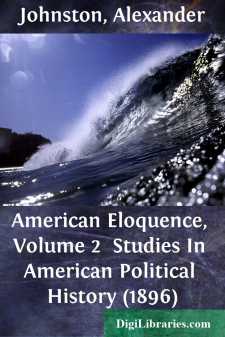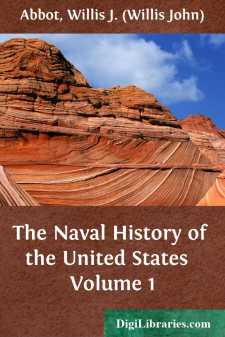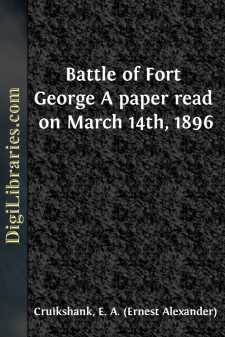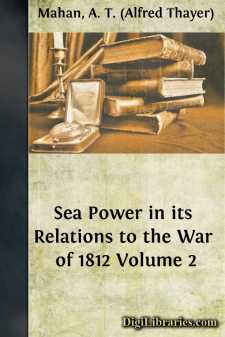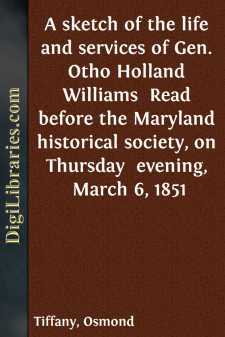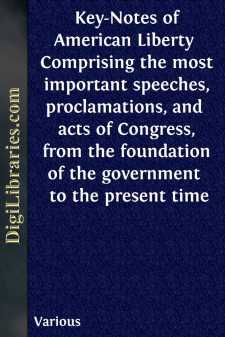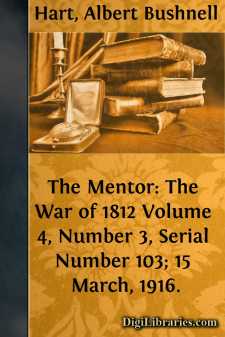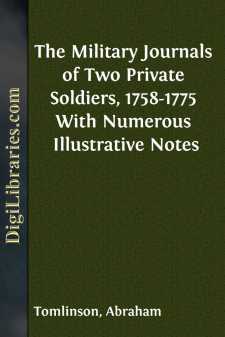History
- Africa 30
- Americas (North Central South West Indies) 50
- Ancient 68
- Asia 58
- Australia & New Zealand 8
- Canada 41
- Caribbean & West Indies 1
- Civilization 20
- Eastern Europe 12
- Europe 310
- Expeditions & Discoveries 60
- General 77
- Historical Geography 1
- Jewish 9
- Latin America 3
- Medieval 8
- Middle East 13
- Military 248
- Revolutionary 8
- Study & Teaching 5
- United States
- Western Europe 56
- World 13
United States Books
Sort by:
INTRODUCTION TO THE REVISED VOLUME II. The second volume of the American Eloquence is devoted exclusively to the Slavery controversy. The new material of the revised edition includes Rufus King and William Pinkney on the Missouri Question; John Quincy Adams on the War Power of the Constitution over Slavery; Sumner on the Repeal of the Fugitive Slave Law. The addition of the new material makes necessary...
more...
CHAPTER EARLY EXPLOITS UPON THE WATER. — GALLOP'S BATTLE WITH THE INDIANS. — BUCCANEERS AND PIRATES. — MORGAN AND BLACKBEARD. — KIDD TURNS PIRATE. — DOWNFALL OF THE BUCCANEERS' POWER. n May, 1636, a stanch little sloop of some twenty tons was standing along Long Island Sound on a trading expedition. At her helm stood John Gallop, a sturdy colonist, and a skilful seaman, who earned...
more...
INTRODUCTORY. All authorities are agreed that the political history of the United States, beyond much that is feeble or poor in quality, has given to the English language very many of its most finished and most persuasive specimens of oratory. It is natural that oratory should be a power in a republic; but, in the American republic, the force of institutions has been reinforced by that of a language...
more...
INTRODUCTION TO THE REVISED VOLUME. The third volume of the American Eloquence is devoted to the continuation of the slavery controversy and to the progress of the secession movement which culminated in civil war. To the speeches of the former edition of the volume have been added: Everett on the Nebraska bill; Benjamin on the Property Doctrine and Slavery in the Territories; Lincoln on the Dred Scott...
more...
For about a quarter of a century Niagara was the principal town and commercial capital of Western Canada, and for a brief period was actually the seat of government for the Upper Province. The removal of the provincial officers to York in 1796 struck the first blow at its supremacy, but its material prosperity continued until the beginning of the war with the United States when its exposed situation...
more...
THE WINTER OF 1812-1813—BAINBRIDGE'S SQUADRON: ACTIONSBETWEEN "CONSTITUTION" AND "JAVA," "HORNET" AND"PEACOCK"—INCREASING PRESSURE ON ATLANTIC COAST The squadron under Commodore William Bainbridge, the third which sailed from the United States in October, 1812, started nearly three weeks after the joint departure of Rodgers and Decatur. It consisted of the...
more...
by:
Osmond Tiffany
Mr. President: The events of the American Revolution are so nearly connected with our own times, that the actors in that great struggle seem yet to be to us as living men. We open the portal of the past century, and are with those who once like ourselves, breathed and thought, and who now, lie not silent or forgotten in the tomb. Their deeds live in our memory; their examples are glorious as of old:...
more...
by:
Various
A DECLARATION. When, in the course of human events, it becomes necessary for one people to dissolve the political bands which have connected them with another, and to assume among the powers of the earth the separate and equal station to which the laws of nature and of nature's God entitle them, a decent respect for the opinions of mankind requires that they should declare the causes which impel...
more...
Our defeat of Great Britain in the Revolutionary War was conclusive; though "we" in that case included France, without whose aid the patriots must have been defeated. It is not so easy to discover a fund of military glory in the War of 1812. That was a great war year. Within a few days of the declaration of war by the United States against Great Britain, Napoleon's Grand Army of over...
more...
INTRODUCTORY REMARKS. The conflict known in America as the French and Indian War, and in Europe as the Seven Years' War, originated in disputes between the French and English colonists, in the New World, concerning territorial limits. For a century the colonies of the two nations had been gradually expanding and increasing in importance. The English, more than a million in number, occupied the...
more...


